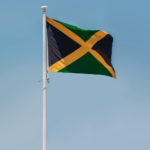Jamaican Language and Cultural Identity
July 13, 2011

It has been said that how a person speaks may identify where they are coming from but not necessarily where they are going.
Access to travel and emigration have impacted upon the evolution of Jamaican Language, sometimes called Jamaican Creole, Jamaican Patois or Jamaican Dialect, of which there are a plethora of variants. It is spoken by most, if not all Jamaicans all over the world and the very diversity of the language is one reason why it has had difficulty being accepted as an official language and has often been erroneously referred to as “Broken English” by those who do not understand or who have no regard for its origin and/or history.
Knowing that English is the official worldwide language, many Jamaican parents who read, speak and write Standard English fluently demand that it be used in the home so that children will master it as their native language. They figure that their children will have no difficulty learning Jamaican Language from their peers in informal settings so they enforce the learning of English in every other possible situation. In such situations, children learn to separate the two languages and find no difficulty switching from one language to the other, when appropriate and necessary. Since the mastery of Standard English has a tendency to represent breeding, class and education, for social reasons, they believe that the greater the speaker’s mastery of Standard English is the more socially acceptable that speaker is, whether or not they occasionally use Jamaican Language.
Ironically, there are situations in which the converse can sometimes be true because the more that Standard English is used to mitigate Jamaican Language is the more broken the English really becomes and such users are technically poor speakers of Jamaican Language. In actuality, the less the mastery of written and spoken Standard English by the Jamaican Language speaker is the more likely the speaker will use “Broken English” rather than speak Jamaican Language, which is a totally different language. This is true of many Jamaicans who claim that they do not speak Jamaican language, even though their English sentence construction is not grammatically correct and their accent and intonation may sound as if they are in fact speaking Jamaican Language.
While the accent, intonation and syntax of some Jamaican Language speakers may sound humorous to other Jamaicans, the truth is that the more Standard English is interspersed into the Jamaican Language, is the more humorous the resulting sound really can be. The more conscious a listener is of the history of Jamaican Language is the less they will see another Jamaican speaker’s accent as something to be ridiculed, no matter how strange the intonation may sound. In addition, historically aware Jamaican Language speakers will not see the need to intersperse the accent, intonation and syntax of Standard English, thereby mitigating the Jamaican Language, in order to sound socially acceptable.
A Jamaican listener may judge the speech of a Jamaican Language speaker using one of two criteria: (1) the linguistic rules of Standard English; or (2) a respect for the history of Jamaican Language. If the listener uses the former criterion, the Jamaican Language speaker will sound humorous or strange. However, if the listener uses the latter criterion, he/she will find nothing wrong with the sound of the speaker.
Following are some situations in which Jamaican Language speakers may sound humorous to Jamaican listeners but quite acceptable to speakers of Standard English or other languages who base their judgment solely on the subject material being discussed:
– When listeners from the urban or more privileged socioeconomic areas of Jamaica are listening to speakers from more rural or lower socioeconomic areas;
– In settings where the Jamaican Language speaker’s accent may be influenced when interacting with speakers of various different languages and cultures, including British English and American English;
– In interviews in which the Jamaican Language speaker may try to impress the listener by using an inconsistent accent, in an effort to sound sophisticated [or “speaky spokey”]. Jamaicans will probably be the only listeners who pick up on this. Other speakers will probably not notice.
– In cases when the speaker is trying to use complex words and sentences,–sometimes to the point of using malapropisms. The foreign listener will probably just assume that this is part of the dialect.
In most cases listed above, a Jamaican Patois or Jamaican Dialect Interpreter will be hired to facilitate understanding between both (sets of) speakers. A Jamaican Language Interpreter may be necessary for:
– Press conferences and interviews;
– TV and Film (subtitles and voiceover dubbing can also be used);
– Court hearings;
– Jail Visits;
– Wire taps for surveillance (translators receive audio tapes or audio files in electronic format and in turn, provide a transcript in the respective target language of what has been recorded in Jamaican Language).
Jamaican Language has endured modifications from its original usage because of the impact caused by the growing numbers of Jamaican users all over the world who speak Standard English and other languages and dialects. In fact, in modern times, how something is said may just sound comical, while in previous times, the same statement may probably not have been understandable at all in Jamaican Language.
Interesting Links:
http://en.wikipedia.org/wiki/Jamaican_Patois
http://en.wikipedia.org/wiki/Jamaican_diaspora
http://www.uvm.edu/~debate/dreadlibrary/herbold.html
More Recent Stories
Latest Posts
- Tribute to a Mentor – Eileen Hennessey, a Translation Legend (At Least in My Book)
- Translating Personal Documents for Official Purposes – It’s Not as Easy as You Think
- Translating Mayan Languages
- A Day in the Life of a Jamaican Patwa Linguist
- Why Speakers and Interpreters of Jamaican Patois Are Multilingual
Blog Categories
- Arabic Language
- Book Reviews
- Certified Translations
- Chinese Language
- documents
- English to Spanish Translation
- Film Reviews
- Foreign Films
- French Language
- French Translation
- General/Business
- German Translation
- Immigrant Issues
- Jamaican Language
- Jamaican Patios Interpreter
- Jamaican Patois Transcription
- Language Awareness/Cultural Diversity
- Legal Translation
- Medical Translation
- Multi-Language Video Subtitling
- Rare Languages
- Social Game Translation & Localization
- Spanish to English Translation
- Spanish Translation and Interpreting
- Translating Jamaican Patois
- Translating Rare Languages
- Translation for Entertainment Industry
- Translation for the Motion Picture Industry
- Translation Service Providers
- Translator Training
- Uncategorized



